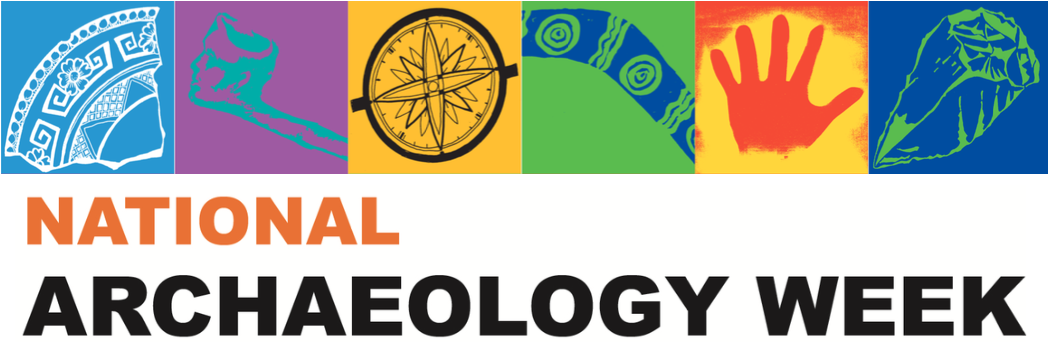Presented in partnership with the Australian Archaeological Association.
This panel will explore how and why we do archaeology now - how we might do archaeology in the future - and how we might develop or enhance the practice. Join archaeologists from across the country for a wide-ranging and stimulating discussion.
Panellists:
Dr Ariana Lambrides, James Cook University (convenor)
Dr Kelsey M. Lowe, University of Queensland
Dr Tim Maloney, Griffith University
Dr Caroline Spry, Wurundjeri Woi Wurrung Cultural Heritage Aboriginal Corporation & La Trobe University (co-convenor)
Dr Georgia Stannard, National Trust of Australia (Victoria) & La Trobe University
Rob Williams, Walgalu, Ngunnawal and Wiradjuri Traditional Custodian & Murrumbidgee Archaeology and Heritage
About the speakers:
Dr Ariana Lambrides is an archaeologist and ARC DECRA Fellow in the College of Arts, Society and Education at James Cook University. Ariana's research focuses on the human palaeoecology of island and coastal settings in Australia and the Pacific through the study of archaeological fish remains. Her priorities have been the development of methods to improve data quality in zooarchaeological research, examining the dynamics of Indigenous fisheries across millennia, and assessing the role of people in shaping biodiversity and landscapes through time. Ariana is also an Editor-In-Chief of the journal Australian Archaeology and Associate Investigator in the ARC Centre of Excellence for Australian Biodiversity and Heritage.
Dr Kelsey M. Lowe is an archaeological geophysicist and geoarchaeologist specialising in geospatial technologies and geographic information systems (GIS). SShe is a Senior Research Fellow on the University of Queensland's Research Support Package (RSP) Anthropocene Project, and Director of Kelsey M. Lowe. Her research focuses on developing techniques that assist in understanding past human behaviour, cultural landscapes and heritage conservation in Africa, Australia, the Caribbean, Europe, Indonesia, Myanmar, North America and Papua New Guinea.
Dr Tim Maloney. I'm a research fellow working on the archaeology of Borneo, under the project: The unknown ‘Ice Age’ artists of Borneo – (FT170100025). I see Australian Indigenous archaeology as the most interesting record of human history on our planet, and the relationship with early human migration and adaptations throughout Island South East Asia is where I continue to research. Stone tools provide the most abundant archaeological evidence from these records. My archaeological research interests and skills are primarily stone tool analyses and how ancient tool variability can be used to model and test lifeways of people throughout human evolution and into the recent past. As the most abundant evidence of human life in the past, scientific analysis of stone tools provides key insight into human evolution, the colonization of our region, hunter-gather lifeways, and innovation of different hunting technologies.
Dr Caroline Spry is Senior Heritage Advisor and Archaeologist at Wurundjeri Woi Wurrung Cultural Heritage Aboriginal Corporation. She is also a Research Fellow in the Department of Archaeology and History, La Trobe University, where she completed her PhD on Aboriginal stone tool technology at Lake Mungo, Willandra Lakes Region World Heritage Area. Caroline is also Co-chair of National Archaeology Week.
Dr Georgia Stannard is an archaeologist specialising in archaeological education, and has recently commenced a new role as the Education and Public Programs Manager for National Trust of Australia (Victoria), after many years in tertiary education. Georgia also has a research focus exploring the intersection of people and Australia's cold climate landscapes.
Rob Williams. I am an archaeologist who belongs to the Walgalu, Ngunnawal and Wiradjuri language nations of NSW and the ACT. Firstly, I acknowledge Aboriginal and Torres Strait Islanders as the first peoples of this land. I also acknowledge the many Pasifika archaeologists and custodians, and academic mentors that I have had the pleasure of working with through my short journey in academia.
I was born and raised in my traditional country of Canberra and have undertaken my entire schooling on country. I completed a master’s at the ANU and then spent a short stint at the University of Sydney before returning last year to my alma mater, the ANU, as an Academic Associate. I have attempted to gain a diversity of experiences throughout my short research career in archaeology, working in the Torres Strait Islands, but predominantly in Vanuatu. I am currently finishing my doctoral thesis which is based on the pre-European settlement history of West Futuna, in southern Vanuatu. I also work closely with many Aboriginal custodians of NSW in both contract and research archaeology. I have desire to use my education, for which I am very grateful, to pursue greater engagement and opportunities for Indigenous peoples.
An online lecture, and part of the 2022 National Webinar Series. Find the series details here.
When: 6-7pm AEST, Monday 16 May 2022
Where: Online via Zoom
To register: https://us06web.zoom.us/webinar/register/WN_FDSyY_fuTpCVCTtP2acptA
For more information: contact us on NationalArchaeologyWeekAus@gmail.com
